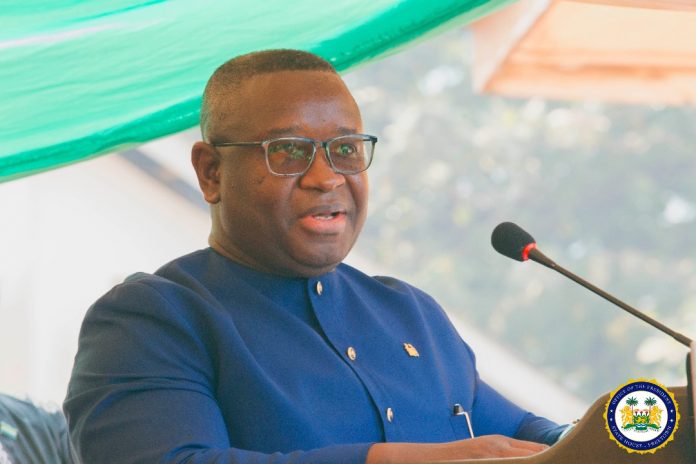By Amin Kef Sesay
Forests are too precious to lose. President Bio in one of his policy statements last year told the nation that his Government was going to plant 5 million trees to re-green the country. Ghana has taken a step towards the achievement of such a national program with the starting of planting five million trees each year.
With environmental degradation and climate change real everyday existential threats to the long-time survival of the human race, halting deforestation and enhancing biodiversity become looming.
Forestry and Agriculture Ministries should now work together – as transforming food systems is key to reverse forest and biodiversity loss while feeding ever-growing number of people.
Deforestation and forest degradation are among the key contributors to greenhouse gas emissions and biodiversity loss. Yet, the world continues to lose tropical forests at an alarming rate. Reversing this trend also requires taking actions outside the forest sector, notably by transforming food systems and agricultural practices.
Food security, sustainable agriculture and forestry must be addressed together; otherwise, the global agreements on sustainable development, climate change and biodiversity will not be met.
This emerging human challenge demands dynamic debate around the key challenges and opportunities to turn the tide on deforestation and transform food systems so that the country can feed the ever-growing population without losing precious forests. The Ministries of Land, Environment, Youth, Rural Development, Agriculture and Forestry working in tandem should reflect seriously on working with triggers for win-win solutions and share lessons learnt from scaling up on-the-ground actions and modernizing policies and regulations.
This is because land and forest are at the crossroads of different agendas: food and energy security, jobs and growth, stability, peace and security, biodiversity and climate action.
In terms of global warming and climate change, forests are cost-effective solutions for carbon sequestration, vital sources of biodiversity and of livelihoods for nearly 25% of the world’s population. In Sierra Leone, there has been little or no progress towards sustainable forest management, balancing environmental, socio-cultural and economic aims. The question is how can we reduce and stop deforestation and forest degradation to instead conserve biodiversity, enhance forest carbon stocks and ensure sustainable socio-economic development?
Land degradation is a related issue. This affects the entire country and is a major cause of forced displacement, conflict and further environmental damage, including ecosystems loss.
One of the Sustainable Development Goals (SDGs) precisely aims to combat desertification, restore degraded land and soil, and achieve neutrality. Managing landscapes sustainably combines environmental, climate and livelihood/development considerations, and is therefore an effective way of sustainably managing natural resources.
How can these three dimensions be balanced to ensure productivity, efficient use of resources and ecosystem and people resilience?
These are what the above name Ministries, their Agencies and international development partners should work out in saving our environment from further degradation and damage.




